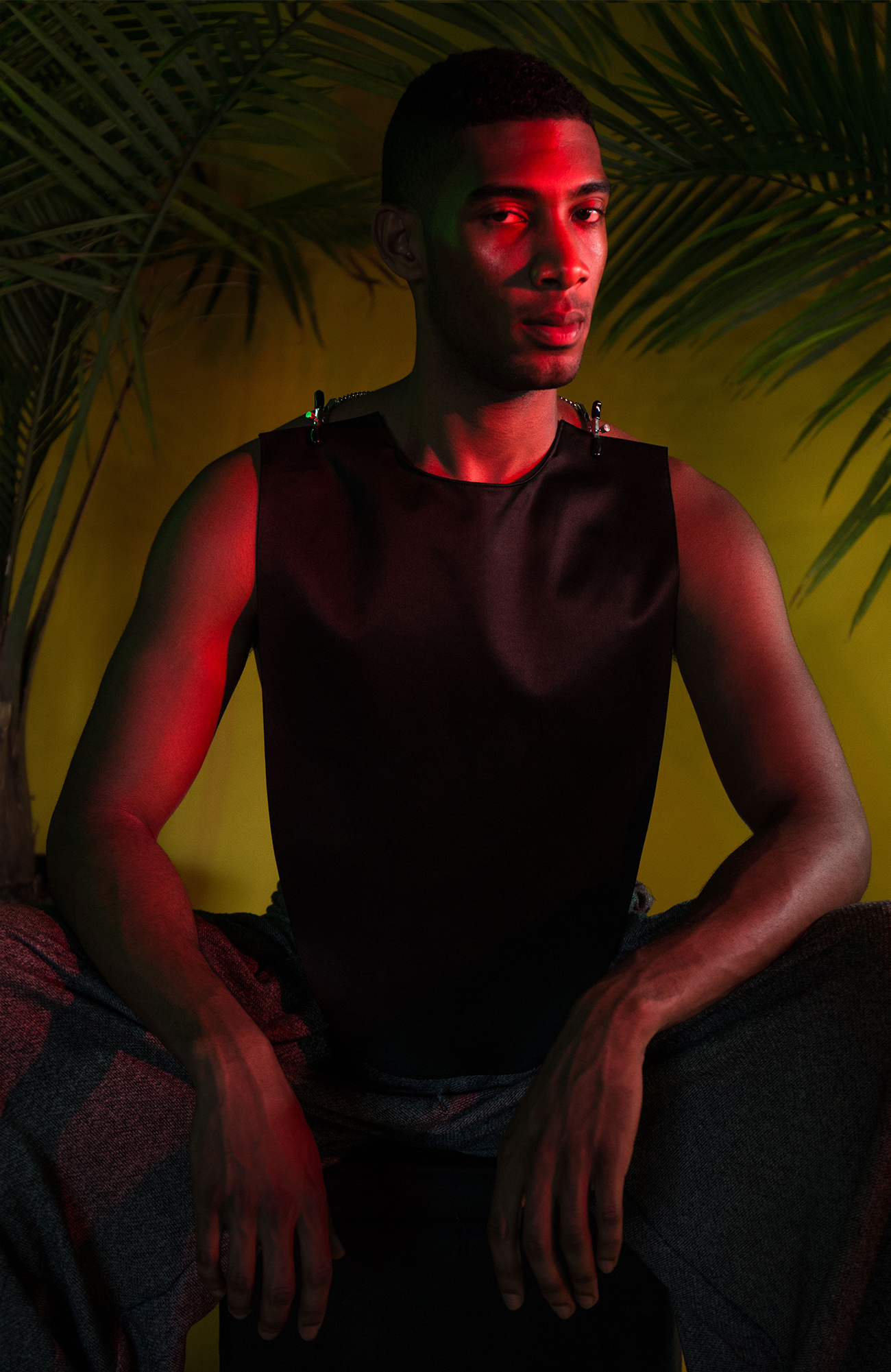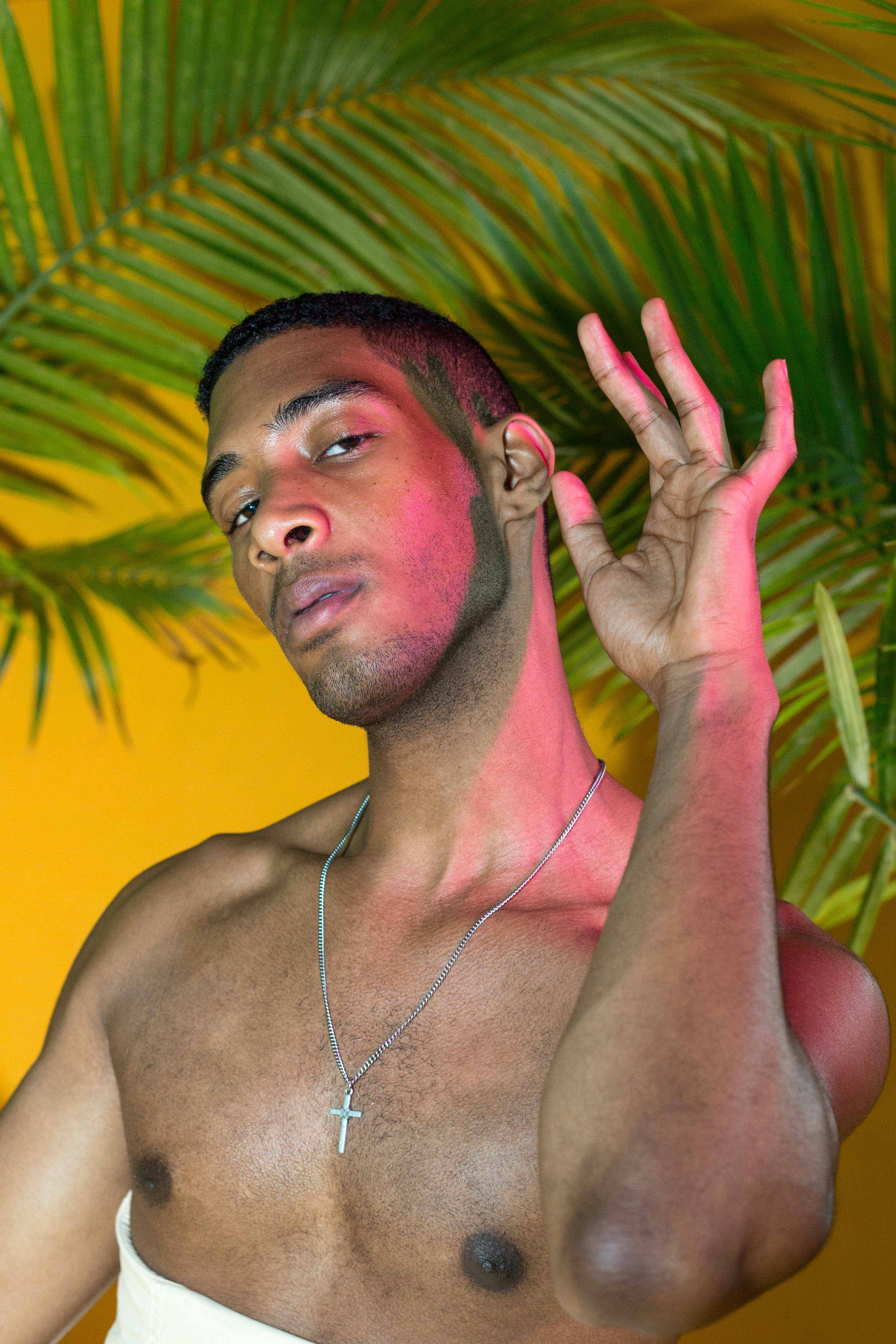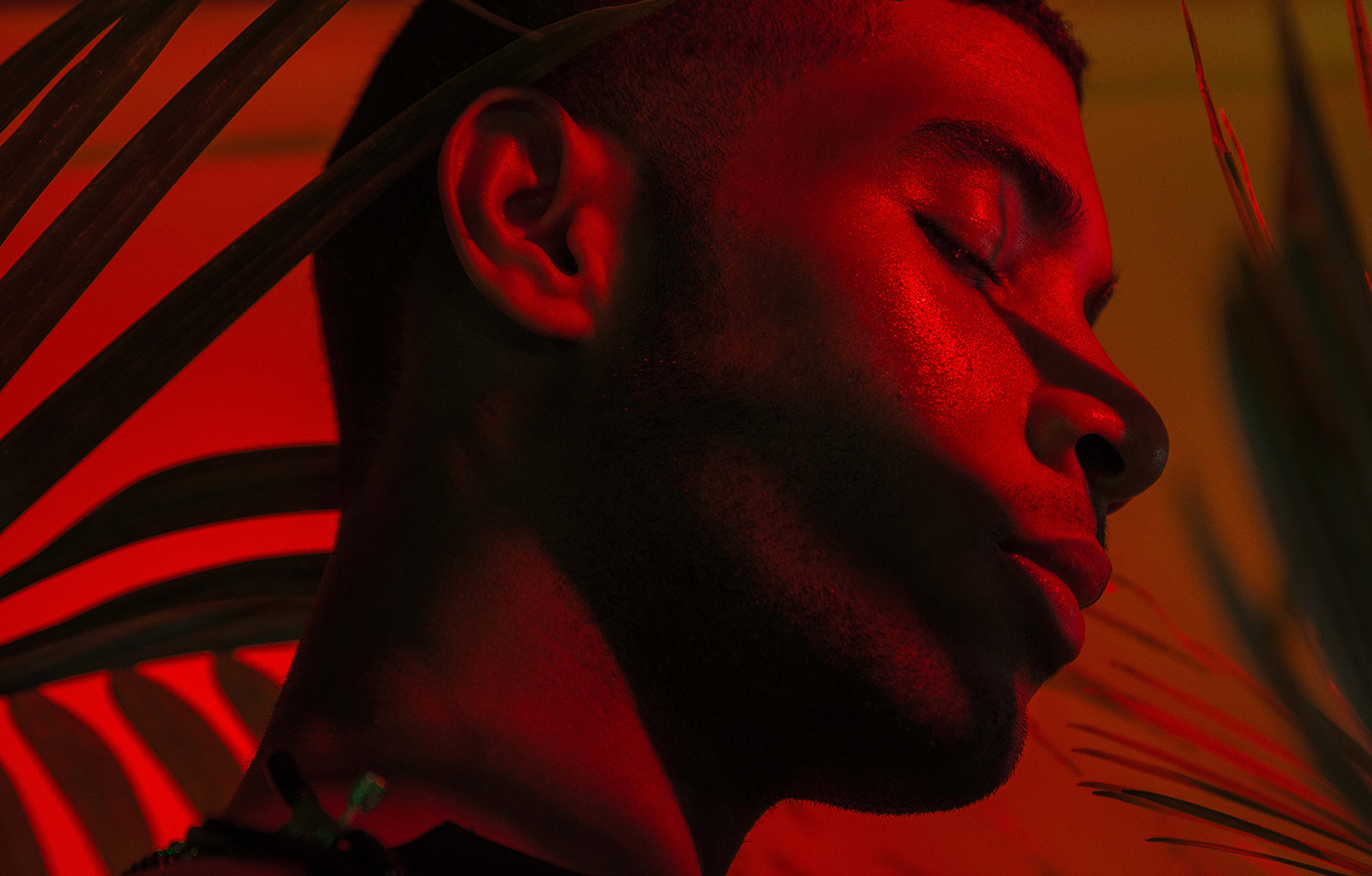“I hated my name for a long time,” says Dominican-born, Washington Heights-raised artist Rubby.
Pronounced like the gemstone, Rubby was coded feminine by his peers. Like most kids assigned male at birth who display any ties to femininity, he was relentlessly teased for it. Named after merenguero Rubby Pérez, the young singer’s idiosyncratic Dominican name wasn’t always an easy one to have. “I was so bullied in middle school and high school. I remember coming up to my dad one day and saying, ‘Why did you name me this?’”
Rubby’s father is a percussionist, and growing up around music and performance set a tone that would influence his life and creative process. “It was pretty fab. Whenever we used to go see him perform, I just loved the fact that my dad was on stage and people were there to watch him.” A lifetime of immersion in live music instilled a veneration of concerts in him. “I just really love watching concerts,” Rubby told Remezcla. “I just love the community and what it creates in that space.”
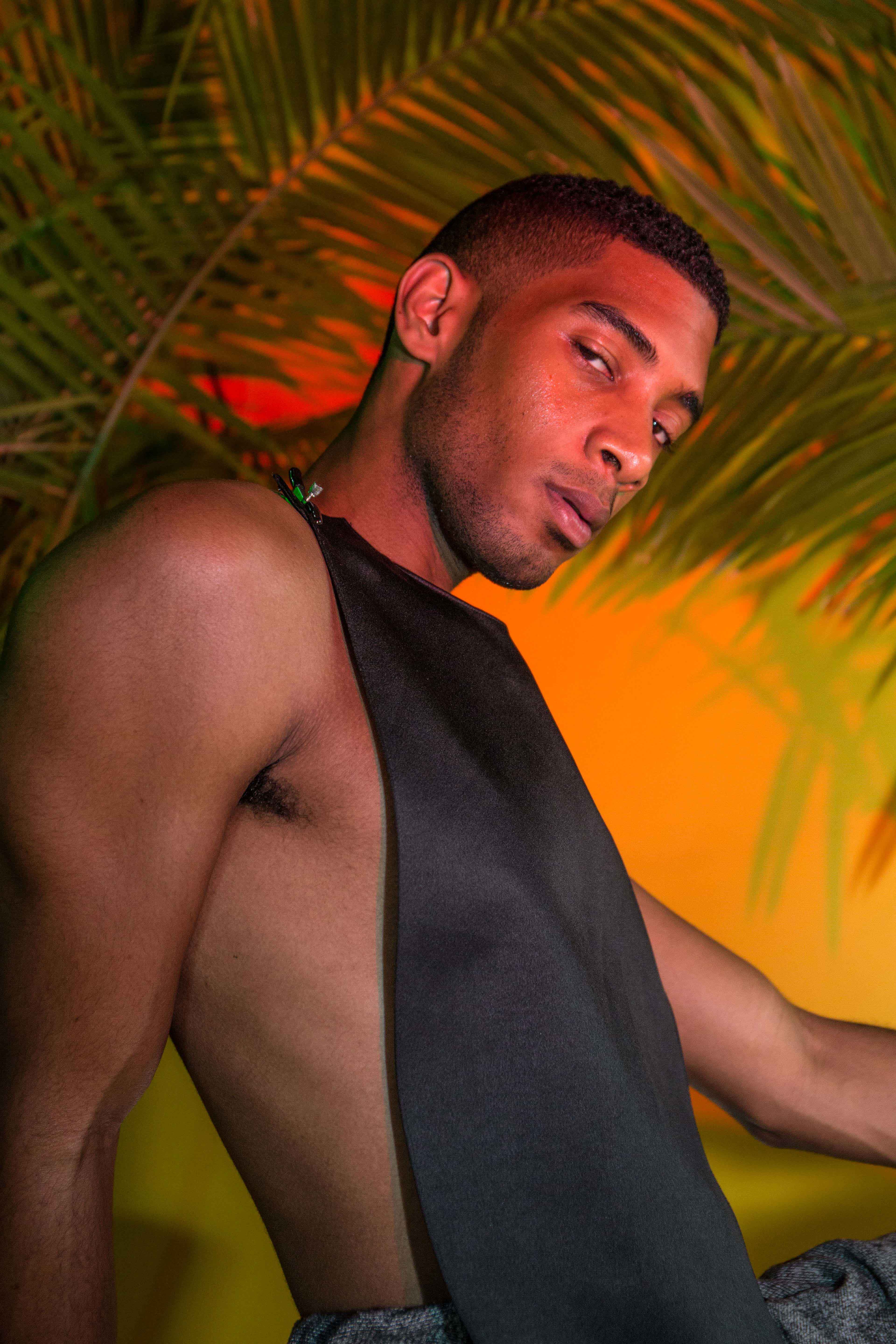
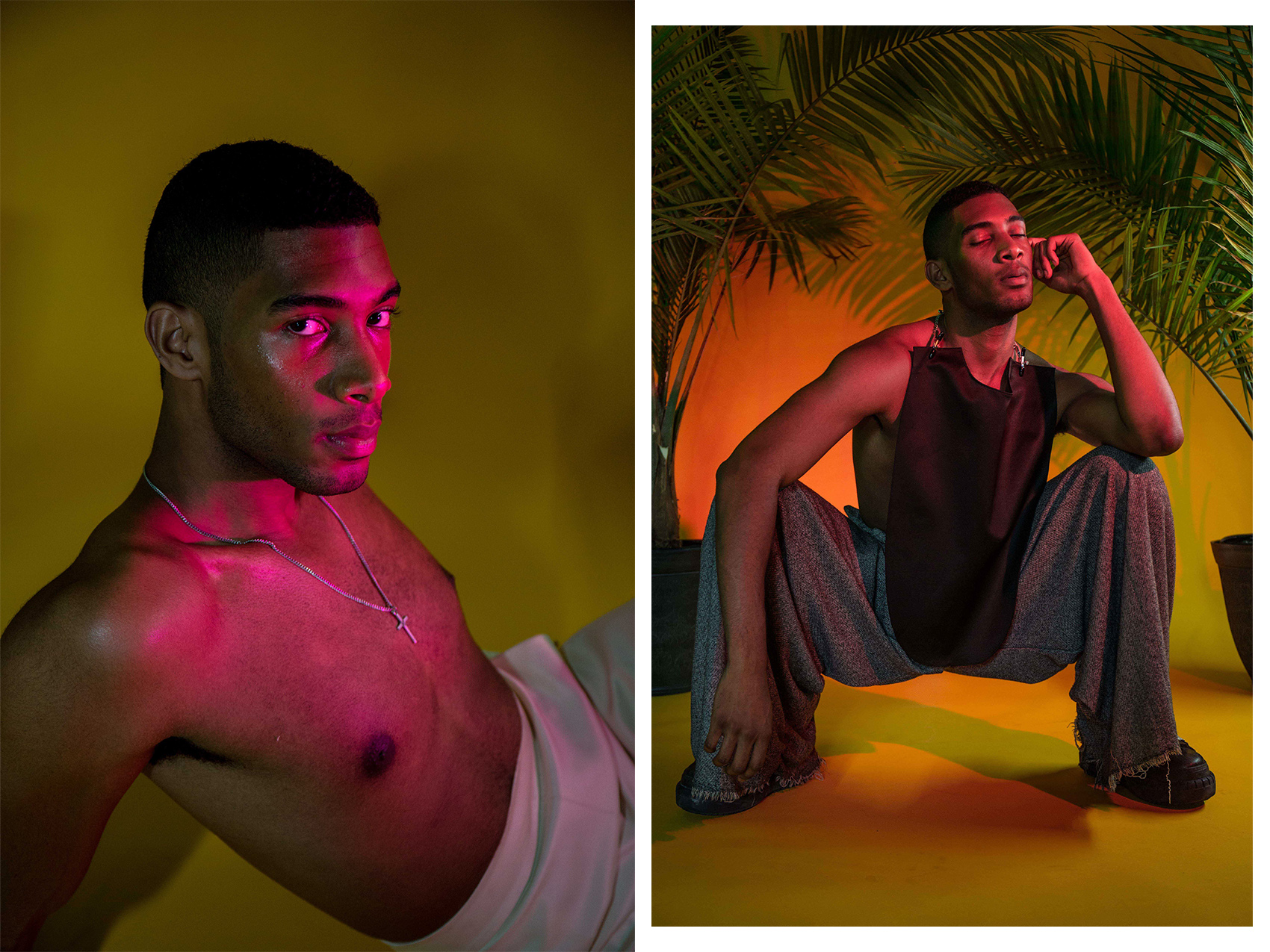
His breakout single “Know Me” is a sullen R&B jam about heartbreak. “[‘Know Me’ was] the first time I was actually like, ‘OK, let me do the full project,’” Rubby says. “Production, video, everything.” A meandering beat and syrupy melody set the stage for Rubby’s pillow-soft vocals, a combination that fits squarely into the growing crop of producers and artists who have incorporated electronic textures into their R&B offerings over the last few years. The song’s visuals find him in a dark, smoky room, at turns back to back with a love interest and alone, covered in glitter. Along with his sparkling body and smoke, green and pink lighting give the visual gauzy surrealism, not unlike the vivid yet fading memory of a past lover.
But it’s Rubby’s latest, “Confiesa,” that is his standout. Quietly sexy, the song captures the moment when desire is at its most tense, deftly articulating the added complications of queer flirtation. Most of us who are queer have been there: figuring out whether the object of our desire might also desire us, whether we are sensing a vibe or imagining it (“Pasando la noche bacana/te veo me miras y no haces nada/mírame frente a la cara”). Sometimes we just kind of know, even if we don’t. This is the space where “Confiesa” lives (“Ya te vi/y se que vas a dar/yo se que quieres más/confiesa”).
The music reflects these tensions: a spectral soundscape meets breathy vocals and a heavy dembow riddim to create a strangely addictive party jam that will quickly find a home in the wine of your waist and the sway of your hips. “The song is about having this tension of desire, so musically it makes sense to have these very high don don, these little sparkly sounds at the top with these grounded reggaeton drums.”
Queer Latinos can be everything and everywhere: rural, feminine, masculine, on a tractor, in a church.
Rubby further explores dialectical tensions by setting the visual in a rural space. “That’s like the leg up,” he explains. “There are a bunch of artists; they’re all in cities…they don’t have access to farms.” In the visual, Rubby dons a Dominican típico dress, and a diablo cojuelo mask usually worn during carnival celebrations on the island.
By setting music and themes that are usually associated with urbanity – dembow, queerness, gender play – in a rural space, Rubby defies normative conceptions of what we can find in rural spaces, and particularly cements that queer people – queer Latinos – can be everything and everywhere: rural, feminine, masculine, on a tractor, in a church. “I really loved that because it was this feminine traditional dress that resonated within a cultural context, which is Dominican, and this mask, demonic and also masculine.”
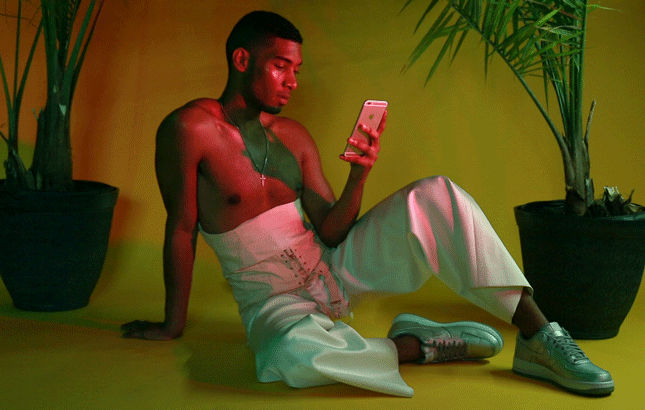
The visual’s setting also points out the flexibility that rural style norms provide, which can make deviating from normatively gendered clothing a bit easier. Since Rubby has been in rural New England for a while now – he left Washington Heights at 13 to go to boarding school, and now attends Middlebury College in Vermont – he has noticed that these different expectations allow for a little more room for experimentation than when he’s back home. “There’s just so much pressure to [be so polished] in the city versus the rural.”
Despite some initial hesitation on his part, Rubby’s family has been very accepting, both of his musical ambitions and of the ways he’s used music as a place to explore gender and sexuality. But as with families, it hasn’t always been without its bumps, like the time his cousin in DR asked if the video was promoting homosexuality. “And I was like, ‘Sí, es el futuro,’” Rubby laughs. “She still shared it; she’s still a fan.” Like many of us who have come out to extended family abroad, there are learning curves, distance, and cultural differences to contend with, but nothing Rubby hasn’t been able to overcome by being straightforward and certain about his art and experience. “I was definitely met with the traditional, ‘Does this mean you’re gay? Is this a gay thing?’ And I’ve just been like, ‘Yeah.’”
Additional reporting by Music Editor Isabelia Herrera.
